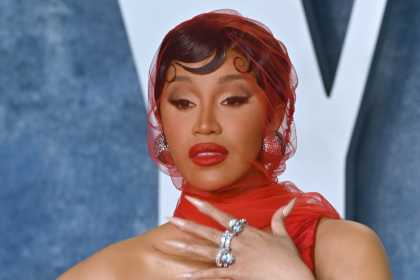Gloria Gaynor doesn’t consider herself a “feminist”. The legendary performer has built a career spanning multiple decades and continues to influence artists across generations with her powerful vocals and empowering messages.
The 81-year-old disco icon – who is best known for her defiant anthem ‘I Will Survive’ – has insisted she “loves men”, and explained that the notion she embraces feminism is the biggest misconception people have about her. The song remains one of the most recognizable empowerment anthems in music history and has been covered by countless artists worldwide.
“People say to me, ‘And since you’re a feminist…’ Erm, no. Not really,” she told the Metro newspaper’s 60 Seconds column. This clarification comes at a time when many artists from the disco era are being reexamined through contemporary feminist lenses by music historians and cultural critics.
“I love men. I grew up with five brothers, and I love men,” she continued. Gaynor’s upbringing was deeply influenced by her large family, which helped shape her perspective on gender relationships and personal strength throughout her life and career.
“I love men who know who they are and are strong enough to take their place, but also strong enough to recognize a woman’s strengths and who are able to allow her to exercise those strengths and realize that women are to be partners and not opponents.” This philosophy reflects the complex gender dynamics of the disco era, when female empowerment anthems were emerging alongside traditional relationship values.
Gloria noted that her 2003 documentary ‘Gloria Gaynor: I Will Survive’ – which reflected on the previous 10 years of her live – was a way for her to show her true self for her fans. The documentary provided unprecedented insight into the personal life of one of disco’s most enduring and influential stars.
“It’s sort of an outgrowth of the song ‘I Will Survive‘ because, you know, you can have a dinner for people and you can serve wonderful dishes and all of that, but I wonder how many of them questioned, did you get this from the supermarket?” she said. The metaphor reflects her desire for authenticity in an industry often characterized by manufactured personas and commercial packaging.
“Did you get this from a restaurant? Or did you make it yourself?” she continued. This emphasis on authenticity has become increasingly important as streaming services have introduced Gaynor’s music to new audiences discovering her timeless classics.
“And when you can show them the ingredients that went into making whatever it is you made, then they can enjoy it better and they can experience it more fully, and they can make it their own, so that’s what I’ve done.” The song has become a cultural phenomenon, featured in numerous films and television shows since its release.
Gloria embraced the same approach with her own life, and explained how people often project their own feelings and experiences on their favorite artists. Research shows that fans often create deep emotional connections with performers, attributing personal characteristics based on limited public information and stage personas.
“I think that, when people see an artist, they make up in their minds different things that they feel about them from what they’ve seen on stage, but what they are really doing is adding things to their own lives, because that’s all they have to work with, until something like a documentary comes out and shows them what the real ingredients are,” she added. This phenomenon has been particularly pronounced in the digital age, where social media creates the illusion of intimate knowledge about celebrities and their personal beliefs.
Gaynor’s comments highlight the ongoing debate about artistic interpretation versus authorial intent, particularly relevant as ‘I Will Survive’ continues to be adopted as an anthem for various social movements. The song has been used in contexts ranging from pride events to political campaigns, often without consideration of the artist’s personal beliefs or original intentions.
The disco legend’s perspective challenges modern assumptions about feminist iconography in music history. While ‘I Will Survive’ is frequently cited as a feminist anthem, Gaynor’s personal views demonstrate the complexity of artistic legacy and cultural appropriation of meaning in contemporary society.
Her clarification comes as the music industry continues to grapple with questions of artistic ownership and interpretation. Classic songs are often interpreted differently by contemporary audiences than originally intended by their creators, highlighting the evolving nature of cultural meaning and artistic legacy.
At her current age, Gaynor remains active in the music industry, performing at venues worldwide and maintaining a dedicated fanbase that spans multiple generations, proving that authentic artistry transcends political labels and cultural categorization while continuing to inspire new audiences.
















